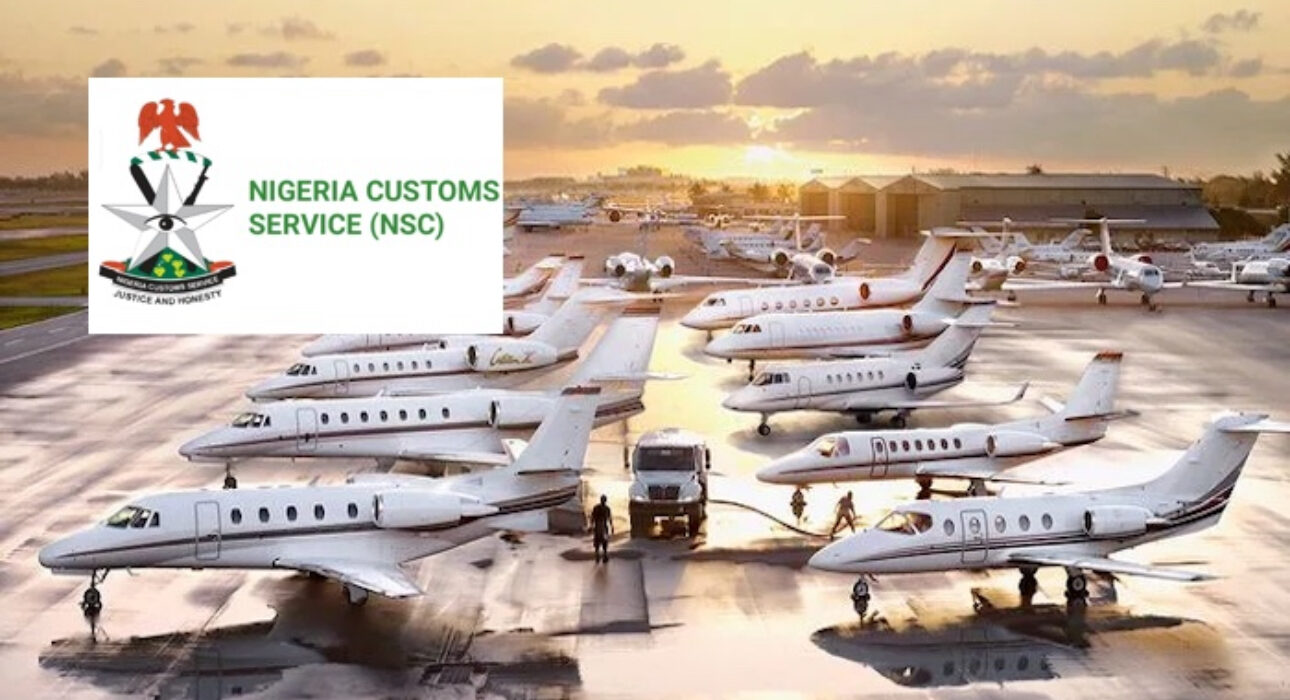Nigeria Customs Suspends Grounding of Private Jets, Embraces Dialogue Over Import Duty Dispute

The Nigeria Customs Service (NCS) has announced the suspension of its earlier plan to ground over 60 private jets operating within the country over alleged non-payment of import duties. Instead, the agency has opted to pursue constructive dialogue with jet owners to resolve outstanding tax obligations amicably.
This development marks a shift in the federal government’s stance following months of tension between aviation stakeholders and the Customs Service.
Earlier in the year, the NCS had launched a compliance verification exercise targeting private jet owners. The audit revealed that dozens of aircraft were operating in Nigeria without fulfilling their statutory import duty obligations—some under expired Temporary Import Permits (TIPs).
Following the expiration of the November 14, 2024, deadline for voluntary compliance, Customs issued demand notices and began grounding aircraft at major airports, including Murtala Muhammed International Airport in Lagos and Nnamdi Azikiwe International Airport in Abuja. Over 60 jets linked to influential figures in banking, oil, and other industries were affected.
In a circular dated June 4, 2025, the NCS directed the temporary unsealing of the grounded aircraft. However, it emphasized that this move does not equate to a waiver of financial obligations. Jet owners are expected to submit relevant importation documents and engage with customs officials in resolving the disputed payments.
“This measure is to create a conducive environment for resolution and ensure voluntary compliance without disrupting aviation operations,” the NCS stated.
The agency clarified that aircraft operators must regularize their status, pay any duties owed, and adhere to customs laws to avoid future sanctions.
The decision to halt the grounding initiative has been met with relief from stakeholders in the aviation sector. The Director General of the Nigerian Civil Aviation Authority (NCAA), Capt. Musa Nuhu, praised the shift in strategy, noting that aggressive enforcement could harm Nigeria’s image and discourage foreign investment.
“Civil aviation regulations do not account for import duty obligations. Burdening operators with legal uncertainties could impact confidence in our aviation sector,” Nuhu said.
Industry groups and private jet operators had previously criticized the enforcement actions, describing them as abrupt and legally questionable. Several operators had initiated court proceedings challenging the NCS’s authority to restrict aircraft operations.
The Customs Service insists that its ultimate goal remains full compliance with import regulations while ensuring that the country’s aviation sector remains investor-friendly and operationally stable.
This development represents a more measured approach by the federal government in balancing enforcement with diplomacy, especially in high-profile sectors where investor confidence plays a key role in national economic growth.
Jet owners are now expected to cooperate with ongoing talks and provide required documentation to resolve their import duty status. The NCS has not ruled out future enforcement measures if non-compliance persists after the grace period for negotiation.
As the dialogue unfolds, stakeholders hope it will set a precedent for resolving regulatory disputes without resorting to disruptive enforcement actions.









